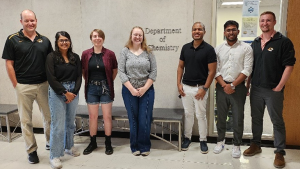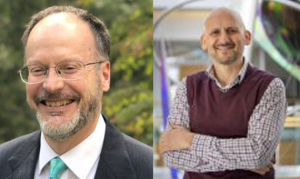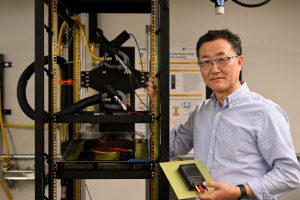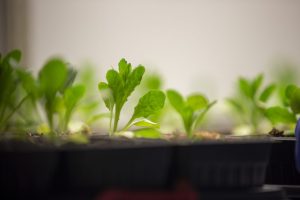
Dec. 20, 2024
Corporations gain expertise through strategic partnerships
Wesley Bernskoetter, Mizzou professor of chemistry, is a leading research partner for multinational companies pursuing potential technologies.

Oct. 24, 2024
Researchers harness DOE technology to further biofuels, basic science
Mizzou researchers have been studying plants to help farmers improve food production.

Oct. 4, 2024
A cool solution
Mizzou researcher Chanwoo Park is designing a next-generation cooling system to help data centers become more energy efficient.

July 10, 2024
Mizzou researcher develops next-generation hydrogen sensors
A University of Missouri researcher is developing next-generation sensors that could be key to using hydrogen as a clean energy source in the future.

Feb. 27, 2024
Engineering devising hybrid two-phase system to efficiently cool data centers
Chanwoo Park, a Mizzou Engineering researcher, is devising a system to cool data centers down more efficiently and effectively.

Feb. 22, 2024
Making blueprints for tomorrow’s energy needs
Zack Miller, a Mizzou econometrician, is passionate about finding answers to big economic questions by learning about the world's energy needs.

Feb. 1, 2024
Mizzou ArchSt awarded Zero Energy Design Designation by the U.S. Department of Energy
U.S. Department of Energy’s Office of Energy Efficiency and Renewable Energy awarded A&S’s Department of Architectural Studies a Zero Energy Design Designation (ZEDD) seal of recognition.

Feb. 1, 2024
Expert: What the surprise oil cuts by OPEC+ mean for Americans
University of Missouri energy economist Zack Miller breaks down how OPEC+'s decision will impact Americans in anticipation of the annual summer driving season.

Jan. 29, 2024
The cutting edge: nanotech on ice
Researchers at the University of Missouri are taking high-precision lithography beyond consumer electronics.

Jan. 29, 2024
Biofuel boost
A CAFNR researcher’s work is making strides that support the health of the planet and the farming families that feed us.
- « Previous
- 1
- 2
- 3
- Next »